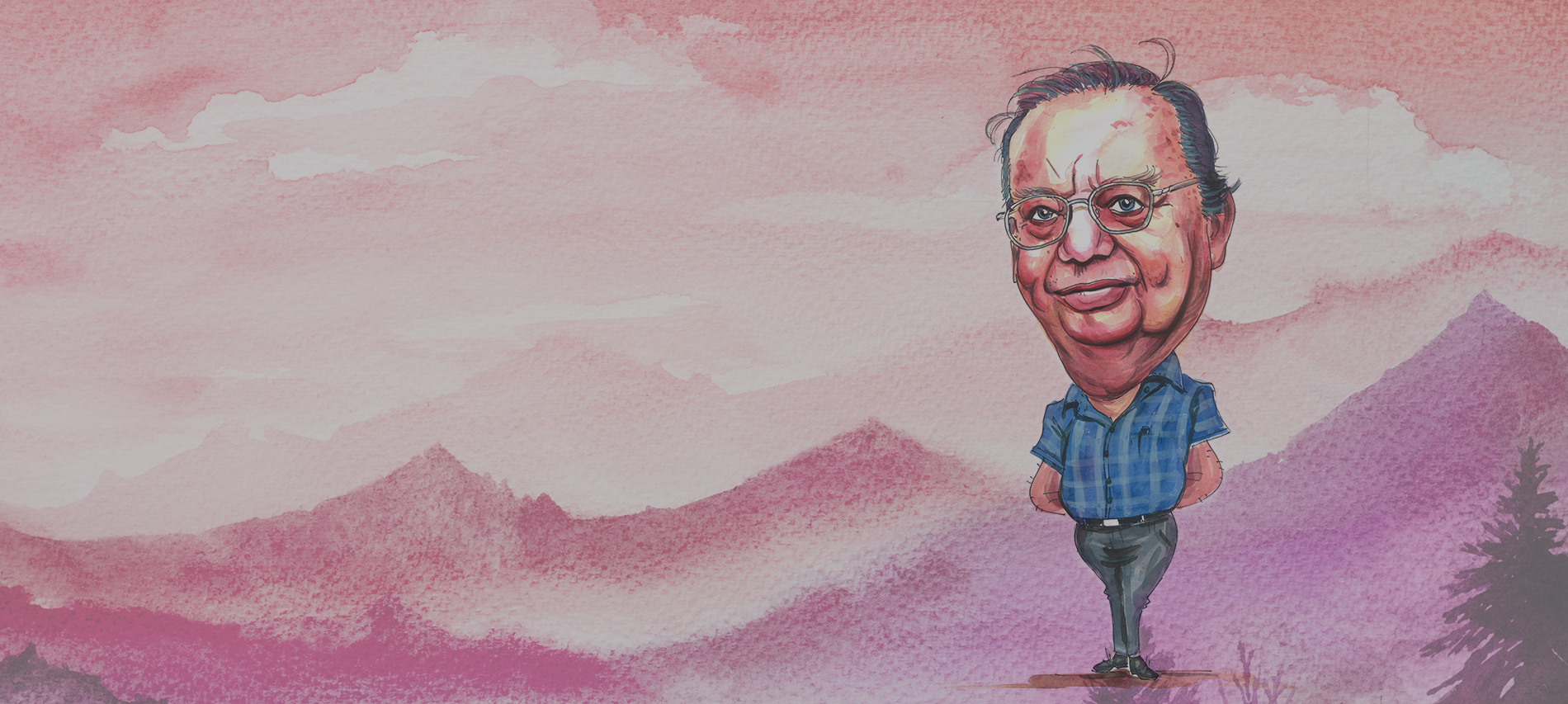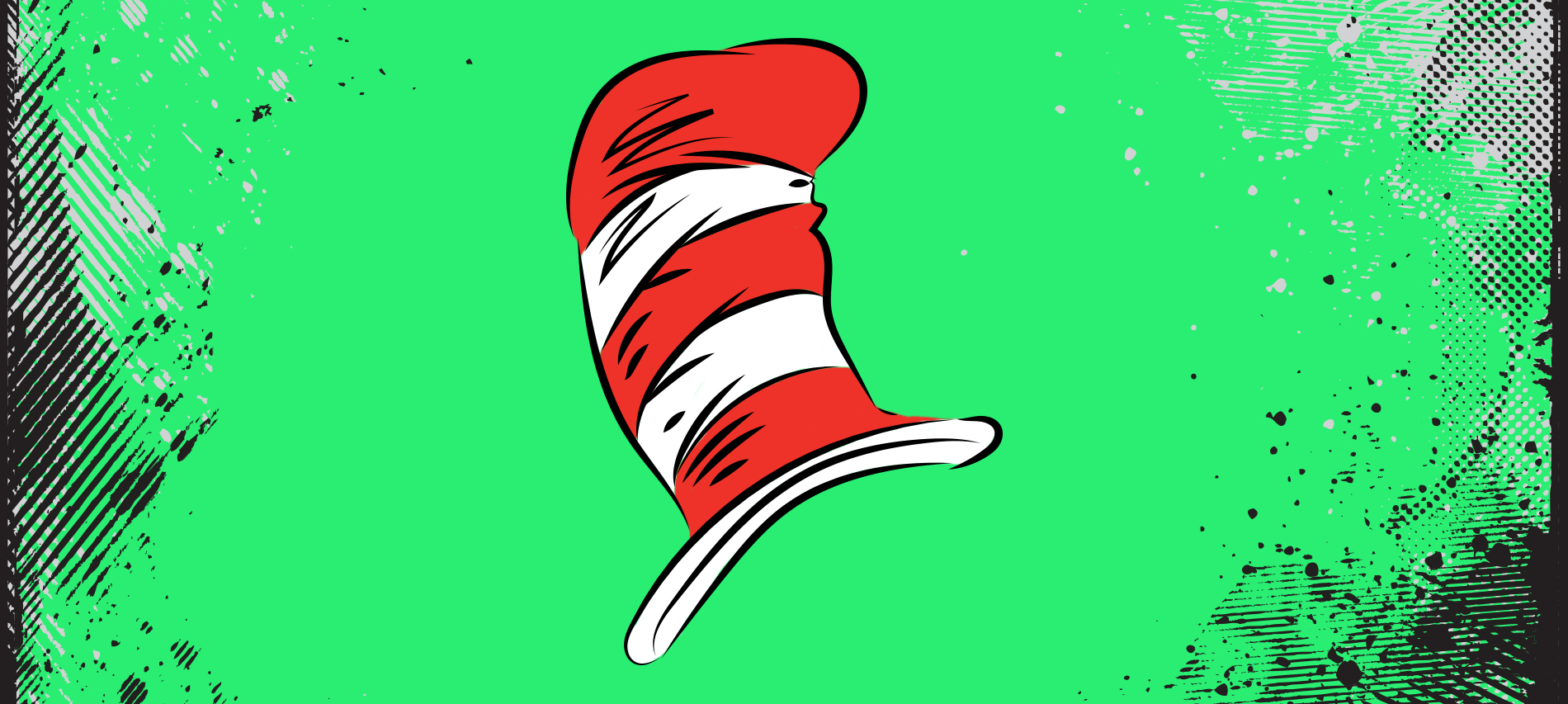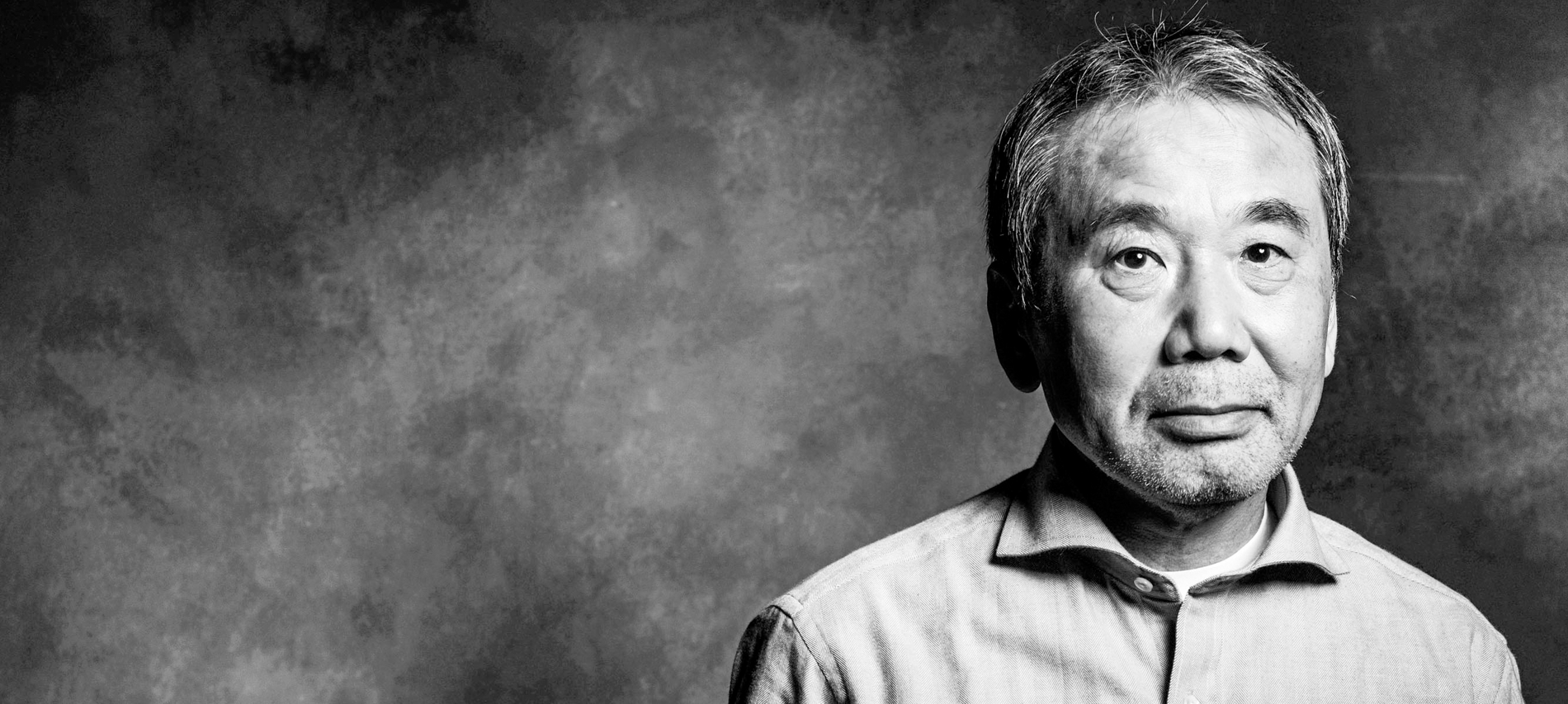Ruskin Bond has written a string of unforgettable tales – stories about nature and animals, and the bond formed between humans and the wild. As we celebrate Ruskin Bond’s 83rd birthday, here are some of his lesser-known great writings.
Vagrants in the Valley
This book catches up with our favourite Rusty as he plunges not just into the cold pools of Dehra but into an exciting new life, dipping his toes into adulthood. At once, thrilling and nostalgic, this heart-warming sequel is Rusty at his best as he navigates the tightrope between dreams and reality, all the time maintaining a glorious sense of hope.

The Day Grandfather Tickled a Tiger
Grandfather had brought home Timothy, the little tiger cub, from the forests of the Shivaliks. Timothy grew up to be a friendly tiger, with a monkey and a mongrel for company. But some strange circumstances lead grandfather to take Timothy away to a zoo. Will they ever meet again? This a heart-warming story of love and friendship!
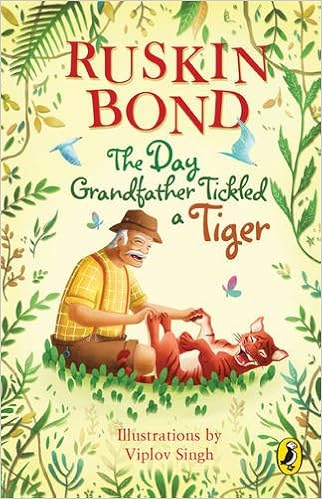
Rusty Runs Away
Rusty’s world is turned topsy-turvy when his father and grandmother pass away in quick succession. The twelve-year-old is sent away to boarding school by his guardian, Mr Harrison. Restlessness, coupled with an ambition to travel the world, compels him to run away from his rather humdrum life at school. But the plan fails, and he is soon back in Dehra, with his strict guardian. Rusty is now seventeen. He rebels and leaves home again, this time for good.
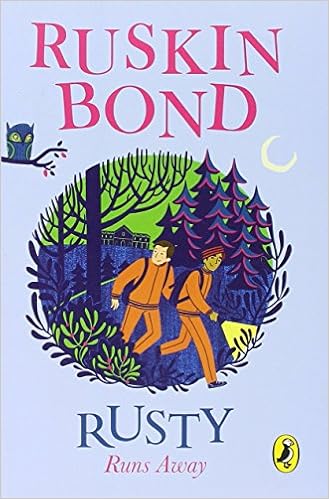
The Tree Lover
His mesmerizing descriptions of nature and his wonderful way with words—this is Ruskin Bond at his finest. Read on as Rusty tells the story of his grandfather’s relationship with the trees around him, who’s convinced that they love him back with as much tenderness as he loves them.

Dust on the Mountain
When twelve-year-old Bisnu decides to go to Mussoorie to earn for his family, he has no idea how dangerous and lonely life in a town can be for a boy on his own. As he sets out to work on the limestone quarries, with the choking dust enveloping the beautiful mountain air, he finds that he longs for his little village in the Himalayas.

Which is your favourite Ruskin Bond story? Tell us as we celebrate the bond of stories with Mr Bond!
Tag: birthday
5 Rabindranath Tagore Poems that Make Him the Master of Our Hearts
Rabindranath Tagore was a poet-philosopher who inspired a whole generation through his writings. Rabindranath Tagore became a literary sensation and went on to win the Nobel Prize in Literature in 1913.
To celebrate Tagore’s birthday, we bring here sections of five of his most beloved poems!
On the Hypocrisy of Faith

On the Vulnerability at the Time of Death

On the Soul of Countries and People

On Missing a Dear One

On Longing

Do you, too, have a Rabindranath Tagore poem to share? What are your favourite lines of his? Tell us, we would love to know!
7 William Wordsworth Quotes that will Brighten Your Weekend
Born on 7 April 1770 in Cockermouth, Cumberland, William Wordsworth debuted as an author in 1787 when he published a sonnet in The European Magazine.
As a youngster, he was encouraged by his father to learn large portions of verse, by authors such as Shakespeare and Milton.
In 1793, Wordsworth published his first set of poems in a collections titled An Evening Walk and Descriptive Sketches. In 1795 after receiving an endowment of £900 from Raisley Calvert, he decided to pursue a career as a poet. With Samuel Taylor Coleridge, he published Lyrical Ballads in 1798 and launched the Romantic Age in English literature. Wordsworth was regarded as Britain’s Poet Laureate from 1843 until his death in 1850.
Today, as we celebrate his 247th birthday, here are some of his profound words.







Do you have a favourite quote by William Wordsworth?
A Poem by William Wordsworth You Should Fall in Love with
She was a Phantom of Delight
She was a Phantom of delight
When first she gleamed upon my sight;
A lovely Apparition, sent
To be a moment’s ornament;
Her eyes as stars of Twilight fair;
Like Twilight’s, too, her dusky hair;
But all things else about her drawn
From May-time and the cheerful Dawn;
A dancing Shape, an Image gay,
To haunt, to startle, and waylay.
I saw her upon nearer view,
A Spirit, yet a Woman too!
Her household motions light and free,
And steps of virgin-liberty;
A countenance in which did meet
Sweet records, promises as sweet;
A Creature not too bright or good
For human nature’s daily food;
For transient sorrows, simple wiles,
Praise, blame, love, kisses, tears, and smiles.
And now I see with eye serene
The very pulse of the machine;
A Being breathing thoughtful breath,
A Traveller between life and death;
The reason firm, the temperate will,
Endurance, foresight, strength, and skill;
A perfect Woman, nobly planned,
To warn, to comfort, and command;
And yet a Spirit still, and bright
With something of angelic light.
—William Wordsworth
A Lesser-Known Poem by Robert Frost that You Must Know Of
‘Out, Out—’
The buzz saw snarled and rattled in the yard
And made dust and dropped stove-length sticks of wood,
Sweet-scented stuff when the breeze drew across it.
And from there those that lifted eyes could count
Five mountain ranges one behind the other
Under the sunset far into Vermont.
And the saw snarled and rattled, snarled and rattled,
As it ran light, or had to bear a load.
And nothing happened: day was all but done.
Call it a day, I wish they might have said
To please the boy by giving him the half hour
That a boy counts so much when saved from work.
His sister stood beside him in her apron
To tell them ‘Supper.’ At the word, the saw,
As if to prove saws knew what supper meant,
Leaped out at the boy’s hand, or seemed to leap—
He must have given the hand. However it was,
Neither refused the meeting. But the hand!
The boy’s first outcry was a rueful laugh,
As he swung toward them holding up the hand
Half in appeal, but half as if to keep
The life from spilling. Then the boy saw all—
Since he was old enough to know, big boy
Doing a man’s work, though a child at heart—
He saw all spoiled. ‘Don’t let him cut my hand off—
The doctor, when he comes. Don’t let him, sister!’
So. But the hand was gone already.
The doctor put him in the dark of ether.
He lay and puffed his lips out with his breath.
And then—the watcher at his pulse took fright.
No one believed. They listened at his heart.
Little—less—nothing!—and that ended it.
No more to build on there. And they, since they
Were not the one dead, turned to their affairs.
— Robert Frost
5 Characters from Dr. Seuss’ Books That You Will Have Definitely Met in Your Life

Spring is here and so is the full blast of colours. The blue of clear skies, the green of swaying trees, the many shades of the sun – from orange to yellow to pink! It is, therefore, only fitting that Dr Seuss’ birthday – a writer who is credited with creating some of the most vibrant stories and characters – befalls in this lovely season.
The author has created many fascinating characters. They carry within them a refreshing slice of life and traits that all of us can identify with.
Here are five of Dr Seuss’ most brilliant characters that you MUST have come across in your life!
Lorax
You can’t chop down trees on his watch. And if you need a lesson in environmental issues, he’s the one you call!

Horton
Ever so kind and compassionate, he’s a soul with a big heart!

The Cat in the Hat
His is a take-it-easy policy. So what if there’s chaos, you can’t stop him from having a grand time!

The Grinch
He hates Christmas, but that’s only because he thinks the festival is a corporate-manufactured event aimed at securing profits. He likes to think beyond presents.

Sam I Am
As persuasive as one can get, he can even sell you green eggs!

Did you find similarities between any of the above and someone you know? Go ahead and share it with that soul!
And here’s wishing Dr. Seuss a wonderful birthday!
5 Novels by Charles Dickens that Dazzled Us
“No one is useless in this world who lightens the burdens of another,” Charles Dickens remarked once. If we care for that standard, Charles Dickens – a colossus standing tall over the literary firmament – is one of the most ‘useful’ people of all time!
Even though he lacked a formal education, he gave us fifteen novels, five novellas and hundreds of short stories that have not only lightened the burdens of numerous generations but also given us a glorious peek into the grand world of his imagination.
Virginia Woolf once tagged Dickens’ works as “mesmerizing” and Truman Capote called him “a great artist”. On Charles Dickens’ birth anniversary, we fetch five of his greatest works that have dazzled men and women, children and elders alike!
David Copperfield
“Whether I shall turn out to be the hero of my own life, or whether that station will be held by anybody else, these pages must show.”

Great Expectations
“I loved her against reason, against promise, against peace, against hope, against happiness, against all discouragement that could be.”

Oliver Twist
“Please, sir, I want some more.”

A Christmas Carol
“I have endeavoured in this Ghostly little book, to raise the Ghost of an Idea, which shall not put my readers out of humour with themselves, with each other, with the season, or with me.”

A Tale of Two Cities
“Repression is the only lasting philosophy.”

Which is your favourite novel by Charles Dickens, and why? Tell us, and join us in wishing Charles Dickens – Happy Birthday!
———–
7 Facts You Probably Didn’t Know About Alice in Wonderland
Today, on the birthday of one of the greatest writers of all time, Lewis Carroll, we bring to you some facts you might not have heard of the book that gave him legendary status.
Alice in Wonderland came out in 1865 and was an instant success. The book is widely credited with changing the landscape of children’s literature, adding nonsensical fun to what had been a genre obsessed with moralizing.
1. The illustrator and the first edition. Prominent English illustrator John Tenniel was commissioned to create the accompanying art for the story. When he saw an early copy of the book, Tenniel was upset with how badly his drawings had been reproduced forcing Carroll to spend almost half of his annual salary to get it reprinted. Luckily, once it was published, Alice in Wonderland was an instant success. The rejected printings were later sold in the U.S.
Prominent English illustrator John Tenniel was commissioned to create the accompanying art for the story. When he saw an early copy of the book, Tenniel was upset with how badly his drawings had been reproduced forcing Carroll to spend almost half of his annual salary to get it reprinted. Luckily, once it was published, Alice in Wonderland was an instant success. The rejected printings were later sold in the U.S.
2. The real Alice. Alice was the name of the daughter of Henry Liddell, the dean of Christ Church College at Oxford, where Carroll taught mathematics. Carroll met the dean and Alice’s older brother first and that was how he came to know the entire family.
Alice was the name of the daughter of Henry Liddell, the dean of Christ Church College at Oxford, where Carroll taught mathematics. Carroll met the dean and Alice’s older brother first and that was how he came to know the entire family.
3. Alice’s Hour in Elfland. Carroll was inspired to write the story when he was coming up with a story for the young Alice Liddell on a boating trip. He tried out a few different titles for his novel, the original – presented to the 10-year-old Liddell was ‘Alice’s Adventures Underground.’ When it was picked up he decided to call it Alice’s Hour in Elfland. Another rejected idea was ‘Alice Among the Fairies’.
Carroll was inspired to write the story when he was coming up with a story for the young Alice Liddell on a boating trip. He tried out a few different titles for his novel, the original – presented to the 10-year-old Liddell was ‘Alice’s Adventures Underground.’ When it was picked up he decided to call it Alice’s Hour in Elfland. Another rejected idea was ‘Alice Among the Fairies’.
4. Carroll and the newfangled mathematical theories. Carroll was a very conservative mathematician and he detested the new forms of math emerging at the time compared to the algebra and Euclidian geometry he favoured. Mathematicians say that riddles like the one the Mad Hatter asks Alice about a raven being like a writing desk, were a reflection on the increasing abstraction that was going on in mathematics in the mid-1800s.
Carroll was a very conservative mathematician and he detested the new forms of math emerging at the time compared to the algebra and Euclidian geometry he favoured. Mathematicians say that riddles like the one the Mad Hatter asks Alice about a raven being like a writing desk, were a reflection on the increasing abstraction that was going on in mathematics in the mid-1800s.
5. The original manuscript. The original manuscript – the hand-written and illustrated version, belongs to the British Library and it rarely leaves London. When New York City’s Morgan Library managed to get hold of it for an exhibition, here’s what The New York Times had to say about it:
The original manuscript – the hand-written and illustrated version, belongs to the British Library and it rarely leaves London. When New York City’s Morgan Library managed to get hold of it for an exhibition, here’s what The New York Times had to say about it:
[I]t is accompanied by security measures whose details are cloaked in obfuscation befitting Tweedledum and Tweedledee. Jamie Andrews, the head of cultural engagement for the British Library, said that it was not checked on the flight over (‘We don’t freight things like that’), but he would not say exactly where it was on the plane or who exactly was with it
It did cause a minor stir at the airport. “I showed the customs form to the customs guy at J. F. K.,” Mr. Andrews said. The man looked at the declared value of the manuscript, a number Mr. Andrews would not divulge. “And he said, ‘Jeez, son, what have you got in there, the crown jewels?’ And in a sense it is our crown jewels.”
6. Alice and brand licensing. Carroll was one of the first authors to work with manufacturers to bring out related products. This is one of the main reasons why Alice’s tale is so popular, even amongst people who haven’t read it. He understood the importance of tie-ins, designed a postage stamp case decorated with images of Alice and allowed her image to adorn cookie tins and other products.
Carroll was one of the first authors to work with manufacturers to bring out related products. This is one of the main reasons why Alice’s tale is so popular, even amongst people who haven’t read it. He understood the importance of tie-ins, designed a postage stamp case decorated with images of Alice and allowed her image to adorn cookie tins and other products.
For fans eager to learn more about the origins of Alice’s tale, he produced a facsimile of the original manuscript, a rare move for an author of his day. Later, he even created a shorter version of the book for toddlers.
7. Alice in Wonderland has never been out of print… ..It has also been translated into 176 languages. The sequel, Through the Looking-Glass and What Alice Found There, sold out within seven weeks of its publication.
..It has also been translated into 176 languages. The sequel, Through the Looking-Glass and What Alice Found There, sold out within seven weeks of its publication.
————
The popularity of Alice in Wonderland, even after more than 150 years, reminds us that Lewis Carroll’s magnum opus has passed the test of time. We hope these facts serve to make you admire him more.
6 Things You Probably Didn’t Know About Haruki Murakami
Haruki Murakami is one of the most famous novelists at the moment. Until age 29, however, he never considered himself capable of writing a book. It was only after the success of his first two books, Murakami became a full-time writer, producing a prolific body of work. He has also taught at Princeton University and won multiple literary awards throughout his career.
Murakami’s works have also been translated into more than 40 languages and have sold millions of copies. The author has gained cult status both at home and abroad. But, how well do you exactly know him?
Despite his popularity, many people do not know much about the reclusive author. That is why, on his birthday, we’ve compiled a few facts that you probably didn’t know about Haruki Murakami.
1. He loves Jazz
Like Toru Watanabe, the narrator of Norwegian Wood, his first job was at a record store. Murakami loves Boston because he feels that it is the most convenient and “satisfying city for collecting secondhand jazz records.”

2. His routine is rigid. And intense.
Murakami has said in the past that he feels writing a long novel is like survival training. He believes that physical strength is as necessary as artistic sensitivity. And judging from his routine, he is a firm believer.

3. He drafts. A lot.
A true perfectionist, all of Murakami’s works are true labours of love.

4. Who did it?
He’s admitted that when he starts writing a story, he doesn’t know the conclusion. He says that he writes the book because even he wants to find out what happens. Murakami believes that if he knew who the killer was, then there’s “no purpose to writing the story.”

5. Video games are like books?!
The award-winning author has revealed that sometimes when he’s writing, he feels like the designer of a video game and, at the same time, the player.

6. His taste in films.
Murakami loves movies, and according to a report, during one year at university, he watched more than 200 films!

A private and reluctant celebrity, Murakami loves to maintain a degree of anonymity and not much is known about him, especially considering he’s a best-selling writer. We hope these facts serve to make you admire him more.
——————







